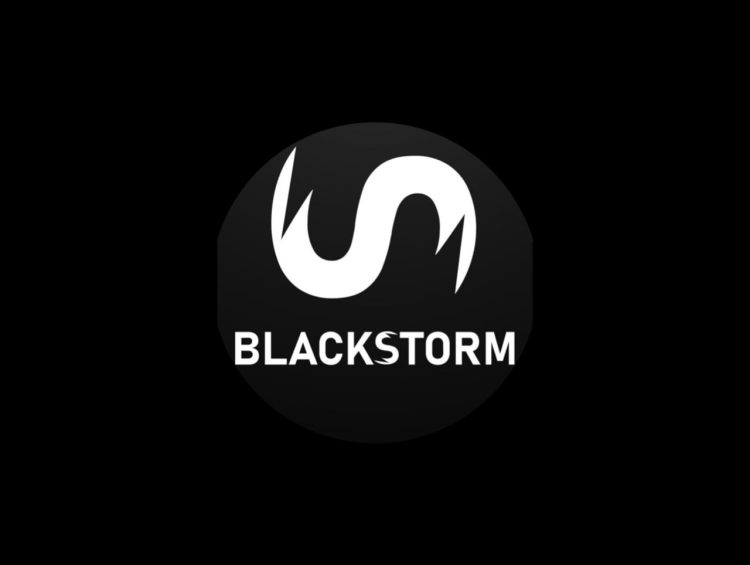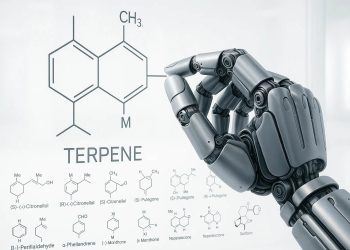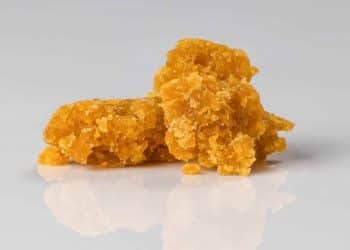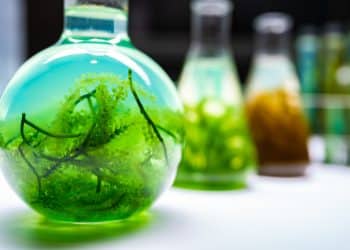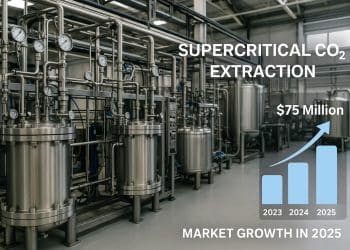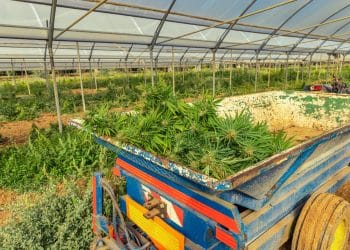A common issue within hemp growers is that their plants produce higher amounts of tetrahydrocannabinol (THC) than expected, falling into the raw of illegal plants. In 2021, the European Parliament approved to increase THC levels from 0.2% to 0.3% for hemp crops used for industrial purposes.
In Switzerland, the threshold of THC content is 1%, above which the hemp plants and the products are classified as narcotic substances. Nevertheless, depending on the desired final outcome, a THC-free product might be the goal.
For this reason, Black Storm gained an important role in the Swiss and European market, offering a service requested by many: the large scale extraction of THC from cannabis buds, capable of transforming an unsellable crop into a rewarding one.
In addition to that and as main and initial activity of Black Storm, they are experts in efficiently producing high quality extracts and isolate Cannabidiol (CBD) or other cannabinoids to produce a large array of products that can be sold as white label. Many shops sell Black Storm extracts and other cannabis derivatives: you will not find black storm logo, but you’ll recognise their undoubtable quality.
Notably after Black Storm processing, hemp inflorescences are still good-looking and can still be attractive to the market of recreational amateurs consuming low-THC content cannabis.
We got the chance to interview the founders of the Black Storm: Roland Jeker and Luboš Lev. Their expertise and passion are visible and result in a multifaceted company capable of supplying high quality products both to big traders and small businesses.
— What is the mission of “Black Storm”? How’d you describe it?
Our mission is to produce reliable products, without any solvent residue and with the analytical proof attesting the absence of pesticides, heavy metals, mycotoxins and so on. We always try to achieve the best final product quality and we care about our customers’ satisfaction. We produce everything as we would do for ourselves.
We are also interested in acquiring more knowhow and getting more knowledge on the techniques we use and the materials we process.
— How did you decide to open this company? Tell us a bit more of your background and how you ended up in this field.
(Roland Jeker) I’ve always been a grower and fascinated about the entrepreneurial aspect of this field.
I like to think about the cannabis industry as a white paper, to shape and create your ideas to reach in the most efficient way the expected goals.
I like the challenge of building up a company and realize what is in mind. I met Luboš as a friend of a friend. He came at first as a helper, but directly from the beginning he actively participated in the development of our company. Since always, we both worked in the cannabis sector and we lived in the extraction industry, starting with small scale equipment, pilot scale machineries till large scale industrial settings.
— Which kind of products do you bring to the market?
We can create products containing different percentages of THC and CBD upon request. We produce a wide range of products: isolates, distillates, CBD hash, THC hash, crumble, moon rocks, icerocks, crude extracts, winterized extracts, distillates, European distillates with less than 0.2-0.3% of THC, e-liquids, THC-free extracts, tinctures, broad-spectrum oils, full-spectrum oils, terpenes fractions, washed-out flowers that fit for the European market with lowered amount of THC.
— We know that you use pentane to lower the THC levels of cannabis buds. Why did you decide to use this kind of solvent?
We prefer liquid alkanes because they are easy to handle compared to the ones in gas state but they can still evaporate easily. The equipment used are simpler and pressure adjustments are not necessary.
With liquid alkanes, there’s less risk of explosions compared to a solvent like BHO and the final product looks nicer compared to the buds washed with ethanol.
— How do you check the purity of your solvents?
We always buy our solvents from reliable sources. We double-check their purity and absence of contaminants through HPLC (high-performance liquid chromatography) and with GC (gas chromatography) before using them.
— Which analytical techniques do you use to quantify the cannabinoid content of your products?
Internally we have an HPLC and we always use it for an initial quantification of cannabinoid content in our products. But, depending on the customer needs, we always send a few samples of the same lot to third party laboratories in order to get additional analysis through HPLC-MS and GC. In addition to cannabinoid content, in third party laboratories we check the absence of pesticides, mycotoxins, heavy metals and solvent residues.
— Which kind of companies ask for your services?
Most of our customers are big traders. They generally use our services to finish their products. We also work with small businesses that order a certain amount of our extracts and isolates as white labels and then they add something to create their own final product. In general, our products are often used as starting material or additional ingredients to create our customers special formulations. The flower washing is a service we added because of the strict European regulations. We started to do it because it was a need of the market.
— Do you rely on storefront distribution?
We produce as white labels. Many stores sell our products in the food and beverage sector and in the cosmetic one. In Switzerland we also supply pharmaceutical and nutraceutical companies.
— Do you sell your products mainly in Switzerland or also abroad?
This year we mainly sold our THC-free distillates to Japan. But in addition to Switzerland, we work all over Europe and in the UK.
— OK, and can you tell about your objectives? What Black Storm would like to achieve in the nearest future?
We want to expand the array of extracts we can do and we like to adjust the procedures and the extraction process also to other starting materials.
We are not just extracting cannabis anymore. We also started extracting mushrooms such as Lion’s Mane (Hericium erinaceus) and Reishi (Ganoderma sichuanense).
In addition to that we are also starting to extract coffee bean shells. We also plan to start producing our own cannabis biomass. It’s something we’ve been thinking about for a long time and now it’s almost about to happen.
